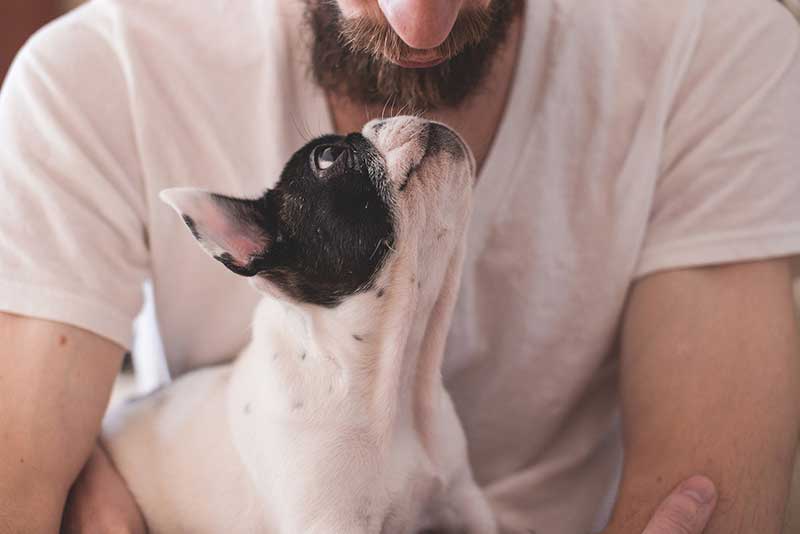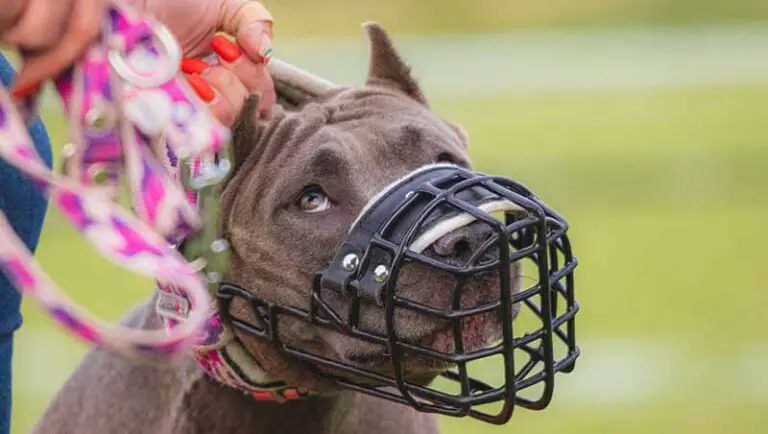Signs Your Dog Imprinted On You – Everything You Must Know
Ever heard the term imprinting behavior? It could be a broad topic to understand, but in the simplest sense, imprinting behavior refers to learning through observation. It is not just human beings that can make a strong bond with one another; animals also have that capability.
As we all know, dogs are outstanding social animals. Growing up in loving and caring nature, dogs certainly imprint on their owners. How do you exactly figure out whether your dog imprinted on you? You might not find fixed answers to this concern; nevertheless, you can observe general signs that help you to understand it.
Can dogs imprint on humans? The standard answer to this question would be yes. Imprinting is a process that infants go through, and it helps them to observe their parents and learn who they are and what they should do. Animals also go through this process when they are young. A dog learns to become a dog by observing the adults of the same species.
But if a puppy grows up in a household with humans, how would this happen? Dogs are capable of imprinting on humans, but that does not mean they ultimately learn how to behave like a human.
The love a dog receives from the human family gives them the notion that their owners are their parents; hence they quickly build a solid bond. So it is usual that they look into you and consider you a parent.
Pet dogs get a minimal amount to spend with their biological mothers. So they consider their owner as the parental figure and learn to imitate their behavior. Scientifically speaking, not all animals imprint their parents the same way.
Especially when it comes to dogs, if they are raised in a house, they imprint on humans very well. To find more elaborative details keep reading this article.
What does it mean when a dog is imprinted?
The term imprinting behavior is widely used among birds, but dogs also imprint on their parents. What exactly happens when a pet dog imprint on their human parents? Let’s try to understand this in the simplest way possible.
Growing up, infants mostly learn things by observing their parents. The way parents behave makes a significant impact on infants determining their behavior because that is how infants first get exposed to the bigger picture.
This process doesn’t precisely happen the same way for dogs, but animals learn most things from their parents. Since pet dogs mostly spend their time with humans, they consider their owners’ parents. Therefore they observe humans and learn things.
Imprinting is not something that will happen in a day. It is a process, so it will take a considerable time for your dog to show the signs that they are imprinted on you.
According to dog experts, this usually happens among dogs under different stages, typically three phases: canine imprinting stage, human imprinting stage, and fear imprinting stage.
The first stage of dog imprinting happens when the puppy is around 3 to 7 weeks, and the second stage is approximately 7 to 12 weeks. During the canine imprinting stage, they mainly grasp their mother’s and litter’s behavioral traits.
The human imprinting stage typically is the span where pet dogs thoroughly get exposed to critical learning. Around the age of 7 to 12 weeks, a puppy can learn much more than they realize as adults.
Fear imprinting happens around 8 to 11 weeks. It means that if your puppy had to deal with an unpleasant or traumatic experience, it would likely impact them as they mature; perhaps it may last for a lifetime.
What are the signs your dog imprinted on you?
Not all dog parents are professional in raising dogs, so you might wonder how to determine whether your dog is imprinted on you.
Well, if you are observant enough, this will not be rocket science. Below are some of the typical gestures of imprinting that you can notice in your pet dog.
- Following and obeying commands
Dogs are loyal and obedient by nature, and you can clearly see this when the dog creates a solid bond with you. Dogs have a pack mentality embedded within them.
Once they leave the litter and come to a home, they start to consider the owner as the pack leader, so they expect the pack leader to take the lead.
When a dog is imprinted on you, you become more like its icon. So they tend to follow commands. It is a common sign of imprinting if your dog is responsive to your orders.
- Making eye contact
Dogs do not prefer maintaining direct eye contact; when bonded with owners, they try making eye contact intently at specific points.
Dogs typically find it threatening and suspicious to maintain direct eye contact; still, if they are close to someone, they prefer having eye contact to indicate their love and intimacy for you.
- Gets excited when they hear your voice
Infants love to listen to their mothers, and it is not unusual to see them getting all happy when their parents talk with them; you will hear giggles and how they get excited by hearing the voice of their parents—no exception for dogs.
When your dog considers you their parent, they will burst with happiness whenever they hear your voice. You will see how their ears get perked up and respond actively.
Dogs might not precisely understand what we tell them; however, when they are close, they’ll keep listening to you and get excited whenever they hear your voice.
- Seeks for affection
When we have a solid emotional connection with someone, we will not hesitate to seek some affection. Dogs, when they are imprinted on someone, will definitely look for love.
If you see your dog following you when you are around, keep their head on you and ask for some cuddles, and snuggle with your stuff when you are not around are gestures showing how much they are connected to you.
How long does it take for a dog to imprint on you?
Although there is no fixed answer to this question, by observing things in general, it is evident that dogs imprint on their owners at a young age.
As mentioned in the first sub-section, dogs will indicate imprinting behavior from the age of two months and above.
In the first few weeks, puppies usually signify the behavioral traits they learned when they were with their biological mothers.
Once they reach the age of three months and above, they will show leaner toward their human family, and you will see clear signs of them being imprinted on you.
Puppies have more potency to observe and learn things than grown-up dogs; hence within 3 to 6 months, you can see signs of imprinting behavior from your dog.
Do dogs only imprint on one person?
Infants typically imprint on their mothers, and we all know there is a phenomenal bond between mothers and their children.
When it comes to dogs, in most cases, dogs get imprinted on one person. This does not necessarily mean that a pet dog only bonds with one family member.
Your dog will merge with everyone in the family and show affection to all of them; they still become imprinted on one person.
One of the family members will stand out because the dog may consider that person the pack leader; furthermore, the dog will naturally feel safer, happier, and loved when they are around that person. So the dog will imprint on that particular person in the family.
What age does a dog imprint?
As already pointed out in this article, there is no exact age for a dog to imprint. However, canine imprinting typically happens around 3 to 7 weeks.
In other words, during this period, the puppy learns things from their biological mothers and litter mates. Puppies start to imprint on humans around the age of 7 to 12 weeks.
Imprinting is a characteristic that develops along with socialization. According to Dr. Sally Foote, dogs usually undergo socialization around 6-14 weeks.
Therefore roughly, they will start imprinting on a human parent when they are two months old. Although this process happens during the pup stage, even grown-up dogs could imprint on you.
Suppose you brought home a rescued dog; it might take a bit of time, but with love and care it gets from a human family, it will eventually see someone as its human parent.
Final thoughts
In this article, we attempted to figure out the signs that your dog is imprinted on you. Imprinting is a process that young animals go through.
Simply put, it refers to observing parents, learning from them, and making a strong bond with them.
Dogs learn who they are through their canine families, but once a puppy starts growing up in a household, it will imprint on the human family.
Most of the time, pet dogs pick one person in the family as their parental figure and will indicate gestures of imprinting behavior.
Thank you for reading this post. Stay tuned with Jack Russell Owner for more interesting posts about your doggy.








